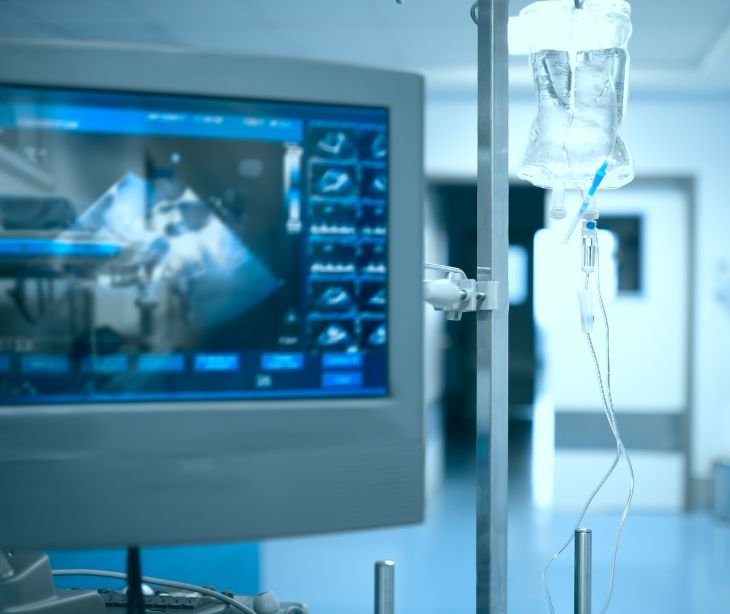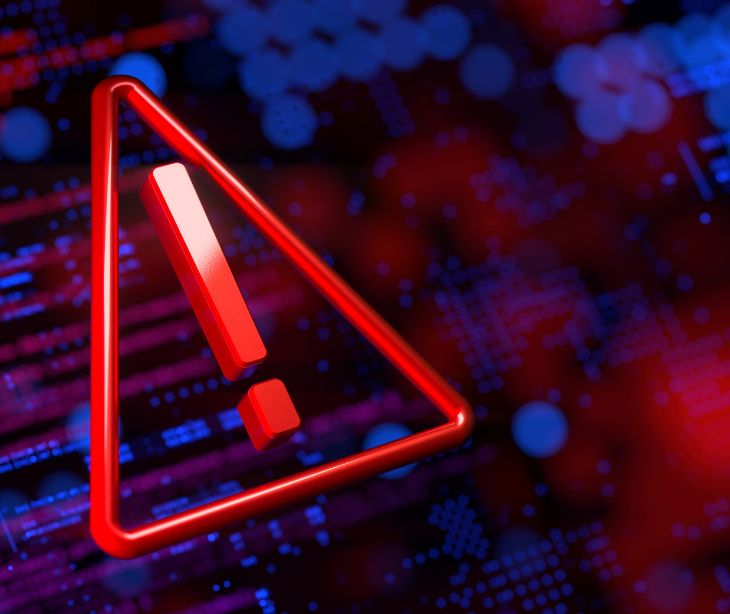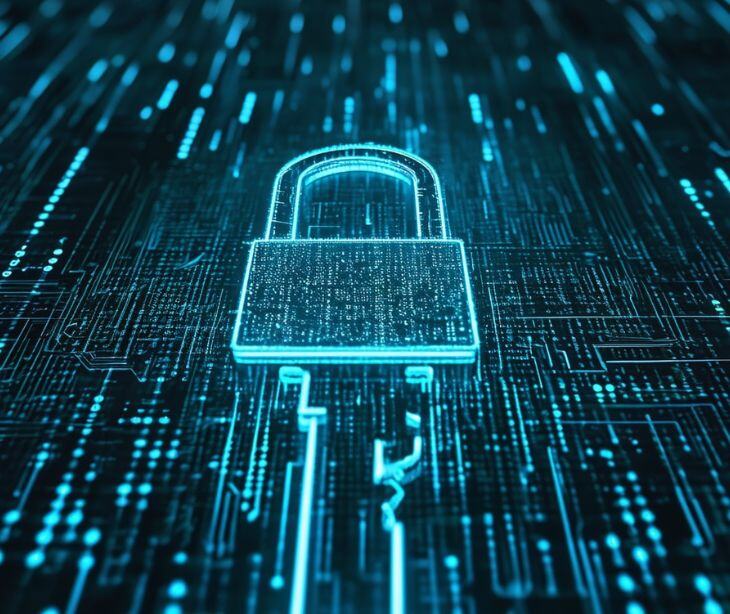
According to a study on Healthcare Data Breaches: Insights and Implications, “E-health data is highly susceptible, as it is targeted most frequently by attackers. A long-term analysis of data breaches showed that healthcare records were exposed by both internal and external attacks, such as hacking, theft/loss, unauthentic internal disclosure, and the improper disposal of unnecessary but sensitive data.”
Healthcare providers must prioritize cybersecurity measures to ensure the safety of patient data and maintain the integrity of their systems. This is due to the sensitive nature of patient information and the potential consequences of a data breach.
Establish a security culture
Employees must know the threats and vulnerabilities that can compromise patient information. By implementing policies, enforcing safeguards, and providing ongoing education and training, you can instill a security-minded mindset among your staff.
- Overcome the perception that "it can't happen to me" by providing education and training.
- Set a good example of information security practices at all levels of the organization.
- Make accountability and responsibility for information security core values.
Read more: How to establish a strong security culture in your practice
IT maintenance
IT systems require regular maintenance to function correctly. Proper configuration management is essential to ensure the security of your systems.
- Uninstall unnecessary software applications to minimize vulnerabilities.
- Configure software properly during installation.
- Regularly update software to address newly discovered vulnerabilities.
- Perform operating system maintenance to remove outdated information and settings.
Protect mobile devices
Mobile devices are integral to healthcare organizations but also present unique security challenges. Due to their mobility, these devices are more susceptible to loss or theft, making patient data vulnerable. It is necessary to take extra precautions to protect mobile devices and their information.
- Implement strong authentication and access controls for mobile devices.
- Enable password protection and encryption for laptops and handheld devices.
- Avoid transmitting electronic health information across public networks without encryption.
Read also: HIPAA and mobile devices
Use a firewall
A firewall is a significant component of a healthcare organization's cybersecurity infrastructure. It acts as a barrier between your internal network and external threats, preventing unauthorized system access.
- Use a firewall to prevent intrusions and threats from outside sources.
- Configure the firewall properly to protect your network.
- Consider using a hardware firewall for larger practices with a local area network.
Related: What is a firewall and does your healthcare business need one?
Anti-virus software
Viruses and malware pose significant risks to healthcare organizations. Installing and regularly updating anti-virus software can help protect healthcare organizations from cybersecurity threats. Anti-virus software should be updated to stay ahead of emerging viruses and malware. Recognize the symptoms of a computer virus infection, such as system crashes or unwanted web pages, and take immediate action if an infection is suspected.
Read more: What is antivirus software?
Plan for the unexpected
Disasters can strike any time, threatening the security and availability of your systems. Having a plan in place protects healthcare records and assets.
- Create reliable backups and test them regularly.
- Store backup media safely, away from the main system.
- Develop a clear procedure for accessing backups and restoring functionality in an emergency.
Control access to protected health information
Strong authentication and access control systems ensure that only authorized individuals can access sensitive data. Consider using role-based access control to determine what information each staff member can access.
Strong passwords
Passwords are the first line of defense against unauthorized access to your systems. Use strong passwords that are not easily guessed and include a combination of upper and lower case letters, numbers, and special characters. Regularly changing passwords further enhances security.
Read also: Increase online security with a robust password policy
Control physical access
Securing physical access to your devices is as important as protecting your data electronically. Limiting access to devices and ensuring they are stored safely reduces the risk of theft or tampering. Consider storing servers containing electronic health information in locked rooms accessible only to authorized staff.
- Secure devices in locked rooms and manage physical keys.
- Restrict the ability to remove devices from secure areas.
- Protect servers from physical hazards like fire and water.
Read more: The importance of physical security in HIPAA compliance
Limit network access
Controlling network access protects systems from unauthorized individuals. Be cautious when using wireless networking tools, as they can expose your network to security threats. Configure wireless routers to operate in encrypted mode and restrict access to authorized devices only.
- Secure wireless networks by using encryption and limiting access.
- Be cautious of peer-to-peer applications that can introduce security vulnerabilities.
- Prohibit casual access to the network by visitors and unauthorized devices.
How Paubox can strengthen an organization’s cybersecurity
Paubox’s suite of inbound security solutions is designed to bolster an organization’s cybersecurity and mitigate data breaches. ExecProtect prevents display name spoofing by quarantining suspicious emails before they reach users, while GeoFencing filters emails based on their geographical origin to block threats from high-risk regions. DomainAge evaluates the credibility of email sources by checking the age of their domains, and the AI-powered Blacklist Bot keeps evolving to block malicious senders.
The Paubox Email Suite also ensures that all emails are HIPAA compliant by default, using TLS 1.2 and TLS 1.3 encryption for secure communication. The premium plan adds email data loss prevention (DLP) to stop the accidental sharing of sensitive information outside the organization. With HITRUST CSF certification, Paubox is committed to maintaining top-notch cybersecurity, especially for healthcare providers, to protect against data breaches.
FAQs
What is cybersecurity and how does it relate to healthcare security?
Cybersecurity involves protecting computer systems, networks, and data from digital attacks, unauthorized access, and damage. In healthcare, it is necessary to safeguard protected health information (PHI) and electronic protected health information (ePHI). Effective measures help keep sensitive patient data confidential, secure, and compliant with HIPAA regulations.
Why is cybersecurity important for HIPAA compliance in healthcare settings?
Cybersecurity is beneficial for HIPAA compliance because it helps protect PHI from breaches and unauthorized access, which are central to maintaining patient privacy and confidentiality. By implementing strong cybersecurity practices, healthcare organizations can prevent data breaches, avoid significant fines, and ensure that they meet HIPAA’s security and privacy requirements.
What are the potential risks associated with inadequate cybersecurity under HIPAA?
- Data breaches: Unauthorized access to ePHI, leading to exposure of sensitive patient information and violation of HIPAA regulations.
- Non-compliance penalties: Significant fines and legal consequences for failing to implement sufficient security measures as required by HIPAA.
- Financial losses: Costs related to breach remediation, legal fees, and potential settlements with affected individuals.
- Reputational damage: Loss of trust from patients, partners, and the public due to the organization’s failure to protect sensitive health information.
- Operational disruptions: Interruptions to healthcare services and administrative functions caused by cyberattacks or compromised data security.
Subscribe to Paubox Weekly
Every Friday we'll bring you the most important news from Paubox. Our aim is to make you smarter, faster.




